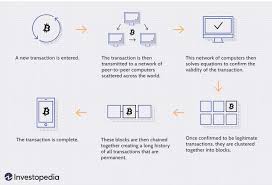While digital-first companies may be less inclined toward physical tokens, farewell cards still hold relevance even in remote settings. With many workers now scattered, finding ways to foster real human connection is more important than ever. A card signed by virtual coworkers, whether delivered via interoffice mail or regular post, can go a long way in making someone who is remote feel included and missed. The same team-building principles apply whether collaboration happens in person or online.
As the nature of work evolves, the simple gesture of a farewell card endures as a timeless way to acknowledge life transitions and reinforce the bonds that make organizations thrive. It brings closure to chapters in a heartfelt way that digital-only goodbyes cannot quite replace. In prioritizing these small acts of gratitude, companies indicate they care not just about productivity but about the people behind it – cultivating loyalty and engagement that drives success in the long-term.
So for both the individual level of making someone’s departure positive and at the team/culture level of bringing people together, farewell cards retain relevance even in our increasingly digital world of work. Their power lies not in grandeur but in sincerity – a quality uniquely human that technology alone cannot replicate. A small token goes a long way in making all the difference during life’s many transitions.
While the benefits of farewell cards are clear, making them a regular part of workplace culture does require some intentional effort. As with any custom, it won’t stick unless leadership and employees alike buy into its value. Here are a few tips for successfully incorporating cards into your organization:
Set the example from the top. When managers or senior leaders depart, take the lead in circulating a card for signatures. This shows the rest of the team it’s an important gesture worthy of their time. It also allows those in higher positions a chance to express gratitude to their own colleagues.
Make cards accessible. Keep a small supply stocked in communal areas like kitchens or reception. This lowers barriers to participation. People are more likely to contribute if signing a card is convenient versus having to go out of their way.
Assign “card captains”. Tap employees known for their positivity and connections across departments to spearhead card efforts. They can ensure all relevant teams have a chance to participate and say goodbye. Rotating this role keeps it from becoming too much work for any one person.
Highlight the impact. Share some of the thoughtful messages or appreciation expressed in farewell cards as a way to reinforce their value. Anonymized quotes can inspire others while still protecting privacy.
Go digital, too. For remote or global workforces, develop electronic templates that allow digital signatures. Hybrid models let coworkers near and far participate equally in showing farewell support.
Farewells are about so much more than simply marking an end. When done right through small gestures like cards, they signify we care not just about work but the people behind it. That human element is what builds true loyalty, creativity and success within organizations. So take the time to say goodbye – your culture and relationships will be stronger for it.While farewell cards are a meaningful gesture, some workplaces may struggle with implementation or face unintentional obstacles. Here are a few challenges that could arise and suggestions to overcome them:
Lack of awareness. Not everyone knows about the card tradition or its importance. To remedy this, clearly communicate expectations during onboarding and periodically remind teams when someone resigns.
Time constraints. Busy schedules may discourage participation. Allow digital signatures to make it quick and easy to sign from any device. Consider having cards available but not requiring signatures.
Fear of emotions. Some dislike publicly expressing feelings and may avoid cards to stay “professional.” Emphasize they provide closure, not just emotions. Lead by vulnerable example to normalize them.
Budget limitations. Printing and supplies cost money that some companies cannot absorb. Digital templates eliminate these costs while still enabling personalization.
Large/remote teams. With many employees, circulating physical cards is challenging. Pair digital cards with occasional handwritten notes for remote colleagues.
Privacy concerns. Shy away from sharing card contents without permission. Focus on the act of participation and community-building over content exposure.
Also Check Free Group eCards
By acknowledging potential barriers upfront and problem-solving as a team, workplaces can work through challenges to establish cards as a valued tradition. With patience and flexibility, even the most reluctant cultures can learn to appreciate these small yet meaningful farewell rituals. Where there’s a will, there’s always a way to strengthen human connections – even in professional settings.
As with any cultural change, maintaining momentum is key to fully integrating farewell cards long-term. Some strategies to keep their positive impact fresh include:
Celebrate milestones. Formally recognize card efforts at quarterly or annual all-hands meetings. Showcasing impact reinforces their value.
Involve new hires. Have onboarding teams help with cards as a way to learn colleagues. This passes the tradition to future generations.
Get creative. Explore variations like digital scrapbooks, video messages, or donation drives. Evolution keeps the ritual interesting.
Survey participants. Gather anonymous feedback on card experiences. Identify what’s working well and opportunities for improvement.
Partner with employee resource groups. Leverage existing communities for customized card initiatives celebrating various life events.
Highlight positive reviews. If your company culture survey asks about farewell experiences, share glowing endorsements of card traditions.
Make it a team-building activity. Periodically have departments collaborate on a card as a way to strengthen intra-team bonds.
With forethought and flexibility, even the simplest of gestures can become a treasured part of your workplace’s identity. Farewell cards epitomize how recognizing human moments bolsters relationships and culture for the long haul. So keep those well-wishes flowing – your organization and its people will benefit in meaningful ways.
In closing, while technology rapidly changes the nature of work, the fundamentals of human connection remain. Farewell cards prove that genuinely acknowledging life’s transitions leaves a lasting positive impact. Any company would do well to make space for this small yet powerful ritual.




